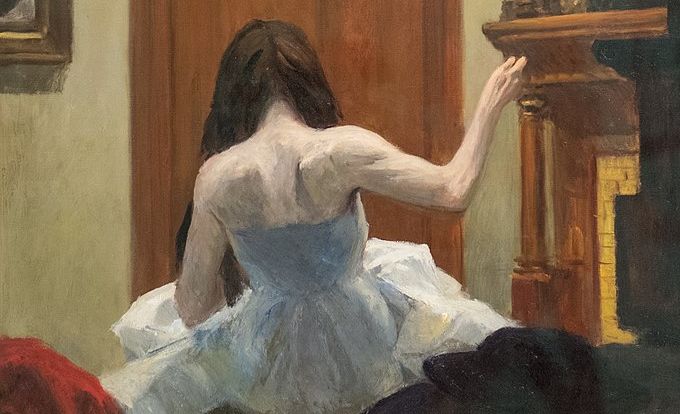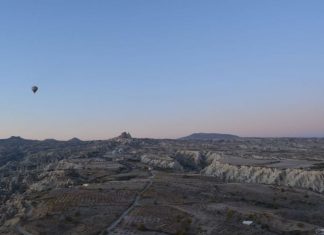That particular lull that comes in the systole-diastole of this earthly ball at two o`clock in the morning invariably aroused him, and though he might not go any farther he would sit up and contemplate the darkness or the stars, wondering. Sometimes in the strange processes of his mind he would fancy that he saw moving among the trees the figure of his lost wife, and then he would get up to follow, taking his utensils, always on a string, and his cane. If she seemed to evade him too easily he would run, or plead, or, suddenly losing track of the fancied figure, stand awed or disappointed, grieving for the moment over the almost insurmountable difficulties of his search.
Hopeless peregrinations
It was in the seventh year of these hopeless peregrinations, in the dawn of a similar springtime to that in which his wife had died, that he came at last one night to the vicinity of this selfsame patch that crowned the rise to the Red Cliff. His far-flung cane, used as a divining-rod at the last crossroads, had brought him hither. He had walked many, many miles. It was after ten o`clock at night, and he was very weary. Long wandering and little eating had left him but a shadow of his former self. It was a question now not so much of physical strength but of spiritual endurance which kept him up. He had scarcely eaten this day, and now, exhausted, he set himself down in the dark to rest and possibly to sleep.
Curiously on this occasion a strange suggestion of the presence of his wife surrounded him. It would not be long now, he counseled with himself, although the long months had brought him nothing, until he should see her, talk to her. He fell asleep after a time, his head on his knees. At midnight the moon began to rise, and at two in the morning, his wakeful hour, was a large silver disk shining through the trees to the east.
He opened his eyes when the radiance became strong, making a silver pattern at his feet and lighting the woods with strange lusters and silvery, shadowy forms. As usual, his old notion that his wife must be near occurred to him on this occasion, and he looked about him with a speculative, anticipatory eye. What was it that moved in the distant shadows along the path by which he had entered a pale, flickering will-o`-the-wisp that bobbed gracefully among the trees and riveted his expectant gaze?
Read More about Ibn Battuta part 16








